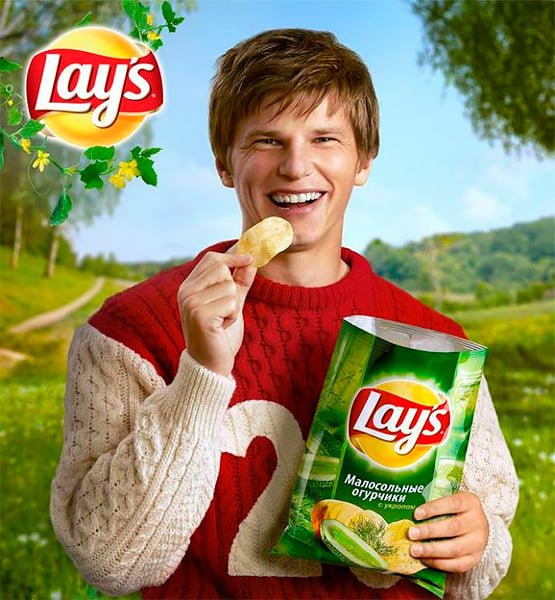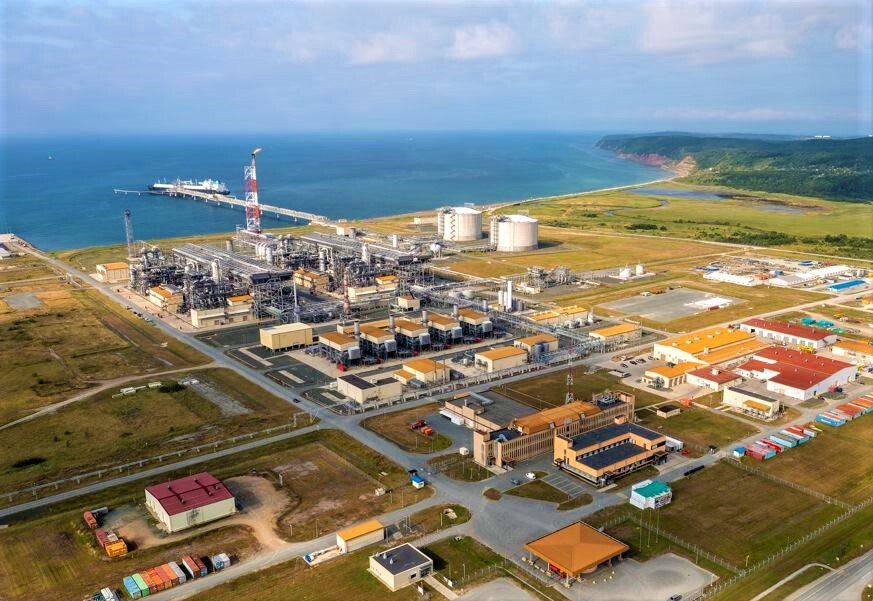Soon after the start of the war, major foreign companies began to announce they were leaving Russia. But it turned out to be easier said than done. Some companies had to stay in the country for a while longer trying to find buyers, while others decided to just continue operations as if nothing was amiss. In the end, “unfriendly” businesses that had remained in Russia increased their profits by half in 2022 — up to 1.1 trillion rubles (€12.4 billion), as per Novaya-Europe’s calculations. We deep dive into how Total, Raiffeisen, PepsiCo, and dozens of other foreign companies made excess profits in Russia during the war — thus, paying taxes to the federal budget.
Excess profits during the war
Many foreign companies released statements about leaving Russia soon after the invasion of Ukraine. This could make it seem as if foreign businesses ceased all collaborations with Russia.
Almost a year and a half later, it can be stated that this is far from the truth: in fact, only a small part of foreign companies left Russia. According to calculations made by the Kyiv School of Economics, only 7% of Western companies (241) halted all operations in Russia and left the country. Another 10% suspended their work but could make a return, while 41% are operating just like before. A third of the companies reduced some of their activities or suspended new investments. According to Russia’s Central Bank, 200 foreign investors sold their businesses in the period between February 2022, when the war began, and March 2023.
Novaya-Europe studied the financial reports by legal entities registered in Russia that are partially or completely owned by foreign companies. Then we compiled a list of the top-100 Western companies based on their net profit from Russian business. The list is made up only of companies from “unfriendly” countries that have not yet sold their assets in the Russian Federation.
Our analysis demonstrates that the largest Western companies improved their results in Russia in 2022 in comparison to 2021. Out of the 100 companies on the list, 68 grew their net profit. Cumulatively, this figure increased by 54% when it comes to the top-100 — up to 1.1 trillion rubles (€12.4 billion).
The companies that increased their profits the most will have to pay the “windfall tax” to the federal budget. It will be calculated from the 2021-2022 “excess profits” (Novaya-Europe’s estimates have it at about 700 billion rubles (€7.9 billion)). This means that the amount of the “windfall tax” paid will be from 33 to 67 billion rubles (from €371 million to €753 million), depending on the timing of payment. In total, Russia’s Finance Ministry plans to collect 300 billion rubles (€3.4 billion) via this tax.
Furthermore, 288 billion rubles (€3.2 billion) of income tax were paid into the federal budget by foreign companies that do business in Russia in 2022. This number makes up about 1% of the total federal budget revenue. The biggest payments came from French (55 billion rubles, or €619 million), British (47 billion rubles, or €529 million), and US (40 billion rubles, or €450 million) companies.
Who earned the most
Energy and banking companies, as well as tobacco and food manufacturers, are in the lead when it comes to net profits. French company Total made the most money in Russia, doubling its net profit compared to the previous year, up to 269 billion rubles (€3.03 billion).
Total sold shares in some Russian projects and renounced oil contracts, but it did not leave Russia entirely. The company still owns 19.4% of Russia’s LNG producer Novatek as well as shares in joint projects: 20% of Yamal LNG and 10% of Arctic LNG 2. The company said in a statement that European sanctions and Russian laws did not allow it to find a non-Russian buyer for the shares.
“Abandoning these interests without consideration would enrich Russian investors, in contradiction with the sanctions’ purpose,” the March 2022 statement reads. The company’s CEO Patrick Pouyanné also said last autumn that Total continued its work in Russia to provide Europe with energy supplies on request from “European governments”. Seventy percent of gas from one of the Russian LNG plants is sent to the European Union. While the export of cheaper pipeline gas from Russia to Europe decreased by almost half, LNG deliveries grew by 20%.
Another leader from the top-100 is Raiffeisen Bank which more than doubled its net profit, up to 141 billion rubles (€1.59 billion). This is the second biggest result in the industry, only surpassed by Russia’s Sberbank. The Austrian bank made money because the biggest Russian banks were disconnected from SWIFT.
According to Reuters, in March 2023 the European Central Bank, facing demands from the US, asked Raiffeisen to develop a “plan of action for unwinding the business” in Russia. Austrian officials found this request to be an “unwarranted foreign meddling”, sources told Reuters. A representative for Austria’s Finance Ministry also said that many countries were continuing trade with Russia, and corresponding financial institutions were needed for this trade to happen. A week later, Raiffeisen announced its decision to “consider the possibility” of selling its Russian branch or removing it from its assets.

Lay’s ad with Russian football player Andrey Arshavin. Photo: PepsiCo
The most profitable food company was PepsiCo (US). Its net profit tripled in 2022, up to 45 billion rubles (€507 million). Last spring, it stopped producing Pepsi, Mirinda, and 7UP soft drinks in Russia. The only exceptions were dairy and baby products. But in summer 2022, it launched the sales of Evervess and Frustyle drinks in Russia.
Coca-Cola also chose the renaming path, but its net profit only grew by 3%. While customers were debating whether the new version of the drinks tasted the same as the old one, the Netherlands’ Heineken joined the soft drink race, launching its own cola. In 2022, the beer company managed to increase its net profit 1.8 times. Meanwhile, original Coca-Cola and Pepsi drinks are available in Russian shops; they are imported from various countries by different companies.
The sudden increase in profits of some everyday use product companies is connected with the fact that their Western competitors, if they did not leave entirely, reduced their operations in Russia, CEO of the INFOLine analytics agency, Ivan Fedyakov, tells Novaya-Europe. He cites Mondelēz (Milka, Alpen Gold, Oreo) as an example: its net profit grew three times, up to 27 billion rubles (€304 million).
However, the growth of this index does not always mean successful sales, Fedyakov explains. The increase of net profit can also be related to reducing investments into the production and advertisements amid the uncertainty.
Out of the big tobacco companies, the only one to have quit Russia was British Imperial Brands. Meanwhile, its competitors increased their net profit significantly last year: Japan Tobacco by half, up to 43 billion rubles (€484 million), British American Tobacco by 81%, up to 14 billion rubles (€158 million). At the same time, Russians are now buying more European-made cigarettes. The number of tobacco deliveries from Germany doubled in the first three months of 2023, compared to the previous year.
Loans to the military and humanitarian crisps
The willingness of many foreign companies to do business in Russia during the war has drawn criticism from the international community. Ukraine’s National Agency on Corruption Prevention (NACP) has been compiling a list of “war sponsors”. The agency calls for sanctions against these companies because they are “providing goods and services of utmost significance for the state and private sectors, as well as adding to the country’s budget”.
In particular, the NACP accused Raiffeisen of recognising the self-proclaimed Donetsk and Luhansk “people’s republics” (“DPR” and “LPR”), offering “favourable loan terms” to Russian servicemen, and “playing along with Russian propaganda”. In response, the bank clarified that it was acting in accordance with the Russian law on payment holidays for participants of the “special operation on the territory of DPR and LPR”.
The list includes one Hungarian company, with Greece holding the highest number — five companies. Until these companies are excluded from the list, the two countries have decided to block the approval of the 11th sanctions package against Russia, Politico reported.
Employees of foreign business branches in Ukraine are also demanding these companies stop working with Russia. In response to the pressure from Ukrainian employees, German supermarket chain Metro turned to threats, Ukrainian businessman and former minister Dmytro Dubilet said. According to him, the German office stated that Ukraine would be deprived of centralised procurement and goods deliveries, which could lead to a full halt of business in the country.
Western companies are also criticised for using humanitarian pretexts to cover their willingness to remain in Russia. In particular, the founder of Moral Rating Agency, Mark Dixon, called PepsiCo out for producing crisps in Russia in an interview with The Wall Street Journal: “If crisps are essential, what food isn’t?”
What is keeping companies in Russia?
Foreign companies cannot sell their businesses or shares in Russian companies without an approval from the Government Commission on Foreign Investments. In summer 2022, Russia’s Finance Minister Anton Siluanov confirmed that the officials were demanding a discount of at least 50% from businesses from “unfriendly” countries.
Later, these requirements became even more strict. In December 2022, two conditions to choose from were added to the 50% discount: either a company that wants to quit Russia pays 10% of the sum to the Treasury as a “voluntary contribution” or give the buyer several years of payment extension. This year, the companies were deprived of this choice — the “voluntary contribution” became compulsory. The Russian government left foreign businesses with two options to sell.
- If a company is sold with a discount of less than 90%, then it has to pay a “voluntary contribution” — 5% of the appraised value.
- If the discount is 90% or more, then the contribution has to be 10%.
The second option indicates that a company is leaving Russia with nothing, senior partner of the Pen & Paper Bar Association Valery Zinchenko explains to Novaya-Europe.
“Basically we are creating conditions to instead make companies with foreign involvement continue working here, so that leaving is not profitable for foreign businesses,” Siluanov previously admitted.
The companies that had made loud statements about leaving Russia in the beginning of the war spoke too soon, economist Vladislav Inozemtsev tells Novaya-Europe. “No one realised what it means to leave Russia.” Now, the companies that want to do so have to use the most unprofitable option — a potential buyer will not agree to a discount of less than 90%, the expert says.
The exceptions are Russian companies that operate on the international market and want to appear respectable, Inozemtsev notes. For example, Russia’s Novatek, which sells LNG to Europe, bought out the share of the UK’s Shell in the Sakhalin-2 project for 94.8 billion rubles (€1.07 billion).
In accordance with Russian President Vladimir Putin’s special decree, the money from the sale of the foreign share in the project had to be transferred to a special Russian account. But Shell was allowed to withdraw the money abroad after the owner of Novatek, Leonid Mikhelson, had personally appealed to Putin, Russian newspaper Kommersant reported at the time.

The Sakhalin-2 project. Photo: Sakhalin Energy
According to the government portal Digital Budget as of 27 May, starting from December 2022 foreign companies gave the state 33 billion rubles (€371 million) worth of “voluntary contributions”. Net assets of the top-100 companies from “unfriendly” countries make up over 5 trillion rubles (€56.3 billion). If they all decide to leave Russia, while their businesses are appraised at approximately this price, then they will end up having to pay about 250-500 billion rubles (€2.8-5.6 billion) as “voluntary contributions”.
The companies that are ready to take a loss to leave Russia have to wait indefinitely for a deal to get approved. There is a queue of at least 3,000 companies to be considered by the commission “without any strict review times”, Zinchenko says. “In the context of blurry guidelines, foreign entities are facing a big number of rejections and hindrances while trying to get the needed approval.”
“The commission meets three times a month and considers not more than seven applications per meeting — so you can do the maths,” Financial Times previously reported, citing a source.
American companies face an additional obstacle in the form of the US government. The Treasury’s Office of Foreign Assets Control (OFAC) announced that the companies would require a specific licence from OFAC to be allowed to pay the “voluntary contribution”.
“Basically, Putin has invented an entirely new way of seizing property. When events of this kind occurred in Venezuela or African countries, they were followed by total nationalisation. Obviously, Western companies filed lawsuits and won against [those] governments. But Putin has come up with a very cunning scheme. The government allegedly does not rob you of anything but creates conditions that make you sell your asset for one ruble to who knows who,” Inozemtsev concludes.
Join us in rebuilding Novaya Gazeta Europe
The Russian government has banned independent media. We were forced to leave our country in order to keep doing our job, telling our readers about what is going on Russia, Ukraine and Europe.
We will continue fighting against warfare and dictatorship. We believe that freedom of speech is the most efficient antidote against tyranny. Support us financially to help us fight for peace and freedom.
By clicking the Support button, you agree to the processing of your personal data.
To cancel a regular donation, please write to [email protected]

